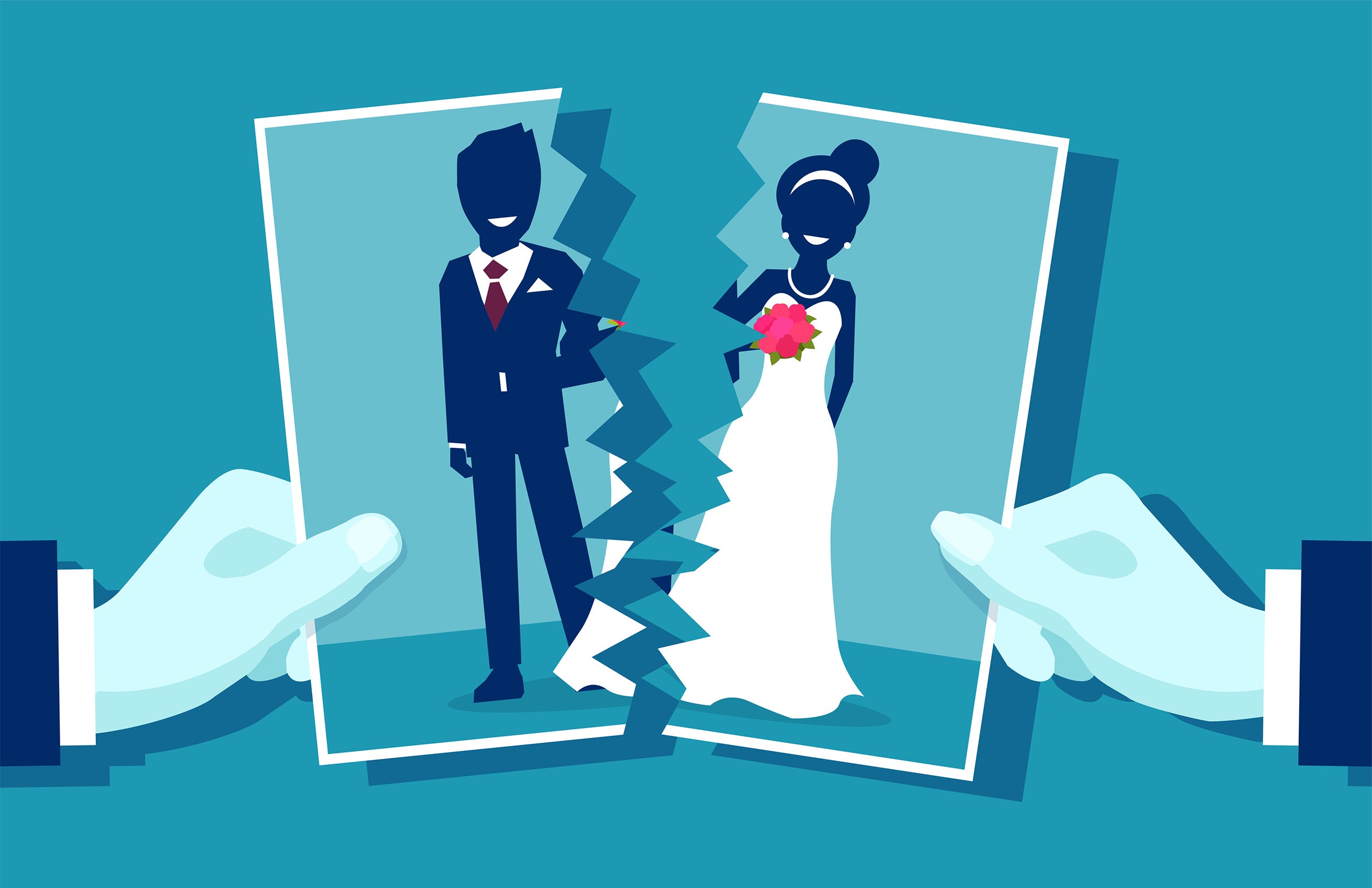$12,900. That’s the average price tag for a divorce in the United States, according to a 2019 survey by Martindale-Nolo Research.
Without an attorney, the cost declines dramatically. But without an attorney, many low-income people wishing to divorce remain trapped in unhappy marriages, according to a study newly published in PNAS and led by Jim Greiner, the Honorable S. William Green Professor of Public Law at Harvard Law School and faculty director of the Access to Justice Lab.
The study, which took place in Philadelphia County, Pennsylvania, found that those who wanted a divorce and who received assistance from a pro bono attorney were “significantly more likely to have obtained one three years later than those who had not,” says Greiner.
Many of us consider who we marry — and the decision to split up — one of our most private and fundamental rights. And the Supreme Court of the United States has agreed, says Greiner.

Jim Greiner is the Honorable S. William Green Professor of Public Law at Harvard Law School and faculty director of the Access to Justice Lab.
“There is generally understood to be a constitutional right to a marriage, and a constitutional right to end your marriage,” he says. But there’s a hitch. “The Supreme Court has recognized the fact that divorce is one of the only legal contracts that the parties themselves cannot end without anybody else’s approval.”
As a result, it is often easier to break your lease — if you and your landlord both agree — than it is to get a divorce, even when desired by both parties.
At the Access to Justice Lab, Greiner and his team try to measure the ability of people, especially the poor and marginalized, to exercise their rights in both civil and criminal cases. Because divorce in Pennsylvania can be (and usually is) handled separately from alimony or custody matters, and because the Court has confirmed the importance of access to one, it proved a perfect subject to test.
“The United States faces an access-to-justice crisis. When the vast majority of individuals encounter the court system … they do so without a lawyer, frequently because they cannot afford one. This study exposes that the crisis is more pervasive and extreme than previously understood.”
The team, which included Thomas Ferriss ’11, Roseanna Sommers of the University of Michigan Law School, and Ellen Lee Degnan from the Southern Poverty Law Center, partnered with a pro bono legal services organization in Philadelphia County. Limited resources meant that the organization could only assign a lawyer to about 25% of those seeking help with a divorce, while the rest received basic do-it-yourself advice.
“We asked folks why they didn’t want to be married anymore,” Greiner says. “Sometimes, someone had a single asset, such as a house, that they wanted to ensure wasn’t inherited by a person they had been separated from for 10 or 12 years. They were essentially estate planning. Others just did not want to be married anymore, or wanted to remarry, or wanted to solidify childcare arrangements. All of the same societal or cultural reasons people marry in the first place can be implicated in a divorce.”
Greiner’s team followed the 311 study participants, 74 of whom were assigned attorneys by the legal services organization, for three years. He says they wanted to answer two questions: First, how did outcomes differ between those who had been offered an attorney and everyone else? And more broadly, what could the results tell them about the courts’ accessibility to low-income divorce seekers?
“That second question depends on how much of a difference a lawyer makes — any kind of lawyer,” says Greiner. “If a court system is accessible, then for a legally simple matter, such as a transition from one legal state to another, ordinarily requiring only the filing of the right paperwork in the right order, the presence or absence of traditional attorney-client representation should make little difference to adjudicatory outcomes.”
But it turned out that having a lawyer mattered. A lot. At the end of the study, 46% of those who had been assigned an attorney had succeeded in terminating their marriages, compared to 9% of those who had not. Tellingly, four in five of those who managed to divorce despite receiving minimal help from the organization had retained lawyers on their own, or had had the proceedings initiated by their spouse.
“In order to get a divorce, you had to have a lawyer,” says Greiner. “It’s unfortunate because a lot of peoples’ cases are simple. ‘I am currently married. I want to be unmarried.’ It’s just hard to think of a simpler legal proceeding, and yet it was really hard for people to do this without a lawyer. It shouldn’t be.”
Why was it so difficult for those without an attorney to file their own cases? Greiner says pro se litigants — the legal term for those representing themselves in court — face mountains of paperwork with unfamiliar terminology and complicated instructions, all of which must be filed during limited court hours. If they make it over those hurdles, they encounter long wait times with little communication from the court as their case wends its way through the system.
“I’ve had students go through the process just as practice, pretending to be pro se litigants wanting to file for divorce,” says Greiner. “I told them they can’t access the internet except at the library, which is how a lot of low-income people experience this. These are first-and-second-year law students, and yet they have a lot of trouble.”
The results of the study might make family law attorneys happy, but they’re bad news for those who can’t afford legal help, says Greiner. More than a quarter of Philadelphia residents make less than $20,000 per year, putting an attorney — and therefore a divorce — far out of reach.
“Not everyone is going to be able to get a lawyer; they’re too expensive and there aren’t enough of the free ones to go around,” he says, adding that the problem is likely not unique to Philadelphia County.
“My suspicion is that this is happening in other places across the country as well,” says Greiner. “Philadelphia is a fairly progressive location, yet this problem still exists.”
Greiner believes that increasing support for more pro bono divorce attorneys will only partially fix the problem. Instead, the courts should consider how to simplify their processes and make it easier for individuals to file their own claims, especially when their cases are relatively uncomplicated, he says.
“It’s not just the Philadelphia Family Court that has to change, because they have to respond to rules from the Supreme Court of Pennsylvania,” says Greiner. “A multilayered approach to reform is necessary. And that could mean lots of things: simpler court forms, fewer waiting periods, more online tools.”
Greiner and the Access to Justice Lab hope that the study sheds light not only on low-income peoples’ lack of access to divorce, but on other ways the poor may be denied participation in the courts.
“The United States faces an access-to-justice crisis,” concludes their paper. “When the vast majority of individuals encounter the court system … they do so without a lawyer, frequently because they cannot afford one. This study exposes that the crisis is more pervasive and extreme than previously understood.”
